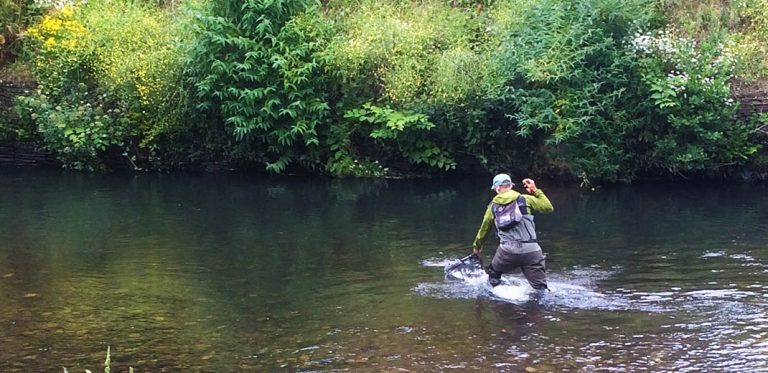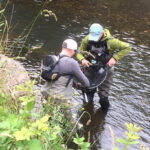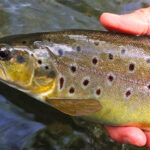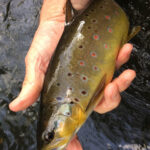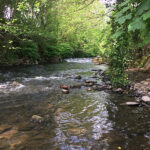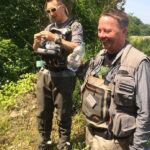By England river team captain – Jeremy Lucas
An outstanding Welsh team, under the captaincy of Kieron Jenkins and management of Paul Jenkins, pulled off a comprehensive victory with a uniformly thorough performance on their home water. Curiously, while they took the team honours and the Geoff Clarkson trophy, the coveted Moc Morgan trophy for the individual winner went to Scotland’s Alan Hill while the largest fish and the Mike Childs trophy went to Ireland’s Eamon Conway with a magnificent trout of 53.6cm. Team England took 2nd place followed by Scotland in 3rd and Ireland in 4th.
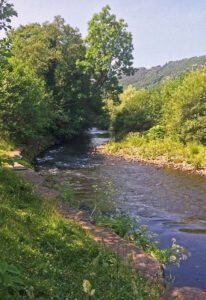
The River Ebbw is a delightful river which has largely recovered from former industrial (coal mining) damage and now supports a terrific head of wild brown trout. In the final week leading up to the international, heavy fishing pressure by all the teams, together with daily temperatures into the low 30s, produced a dour river. Nonetheless, during the competition day, a total number of 251 trout were caught (and returned safely), which is nothing short of remarkable. It reveals, frankly, the very high standard of the contemporary international-level fly fisher.
The range of nymph methods produced the bulk of the fish for all teams, though dry fly featured strongly. England’s Jonathan Barnes pulled off a remarkable feat during his afternoon sessions, on probably one of the worst sections of the entire river, by rising all five fish he saw, and netting four of them.
The contest was very balanced among the visiting teams. After the morning sessions my England team was trailing in last place, while both the Scots and Irish teams had some excellent sessions. I watched one of my own team members, Fred Bainbridge, extract absolutely the very best out of a peg which in my view could not have produced more for anyone, and in this I include the top European competitors.
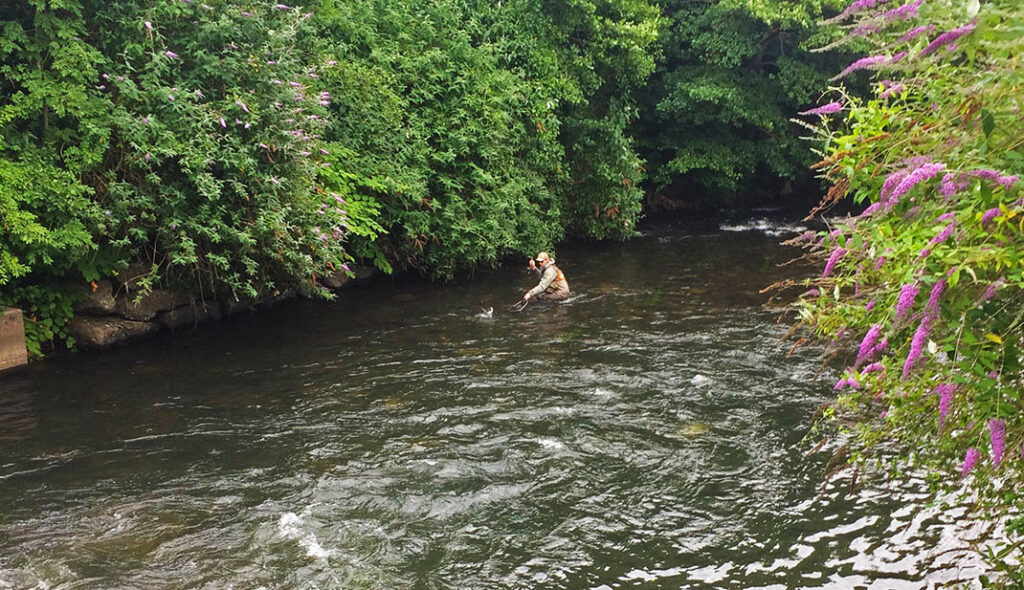
During the afternoon, however, I was able to observe a typically brilliant England recovery, with all our anglers recording firsts and seconds such that we finished in the silver medal position. I can recall several, great, ‘last ditch’ England team performances and I put this one right up there. Andrew Scott, who is without doubt a World Class competitor, produced a typical result, finishing fifth overall, while three of the rest of the team – Andy Ford, Steve Cullen and Fred Bainbridge – were experiencing their first river caps, yet still managed a thoroughly mature and measured result. The team preparations were exemplary, hugely aided by our reserve, Harry Fox, whose work effort was nothing short of phenomenal, and was certainly inspirational for the team. I have no doubt that this young man, already capped in the loch-style discipline, will move on to great things for our country.
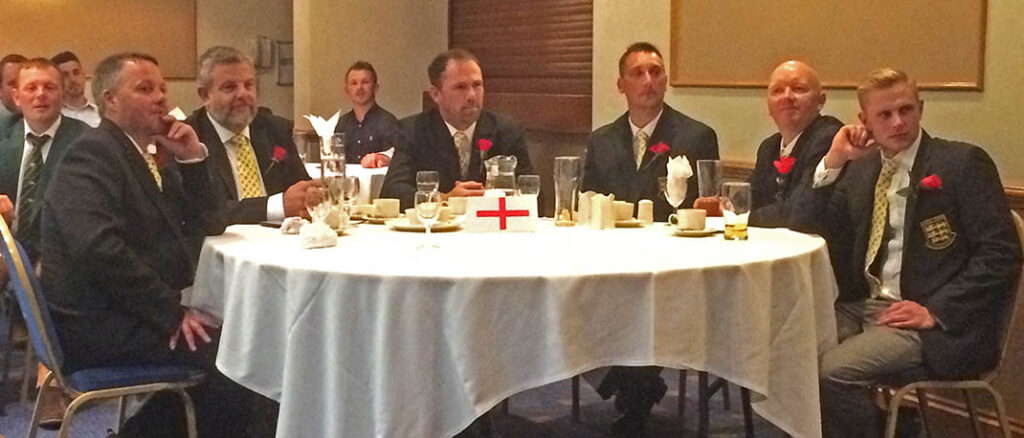
I loved the pragmatism throughout my team. We could all see that we had generally drawn comparatively bad pegs, but there was no complaint about this. They simply made the very best of what they had, and it was this that made the difference – incidentally, by the tightest margin, with only one placing point separating second and third, and similarly between third and fourth. Yet such fine margins disguise a great deal.
For me, as England river team manager, it felt like coming home. I see very positive signs out there among the enormous talent base we have; that we are turning the metaphorical corner and that there is so much potential. In any case, I shall always be grateful to have been a part of this 2017 river team and to have witnessed an England performance up there with the very best.

